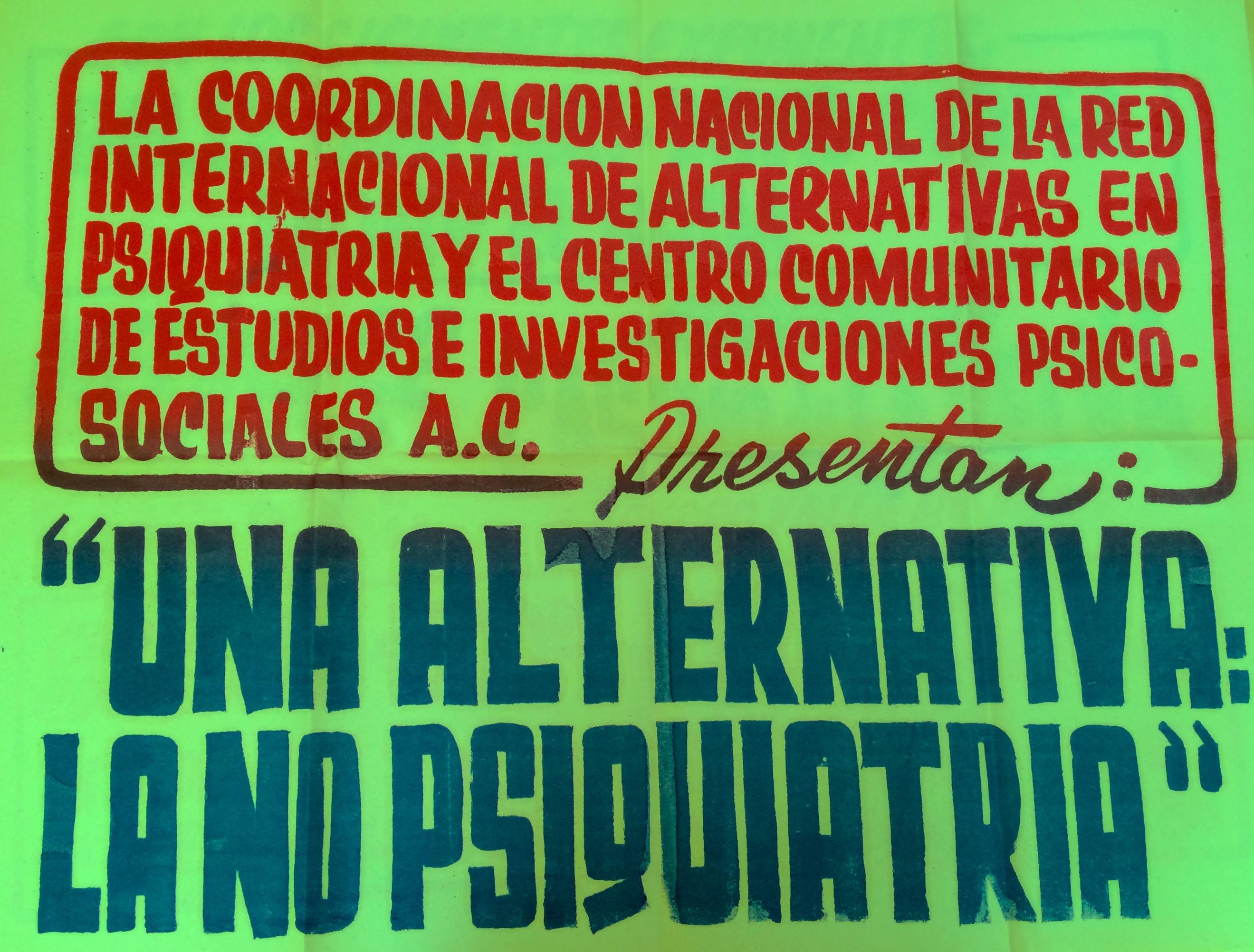Network of Alternatives to Psychiatry
# 0 – Project presentation
The Réseau-Alternative à la psychiatrie is perhaps one of Guattari’s least known collaborations. To understand the Réseau is to seek out the intersections and learnings that emerged from the encounters it organised, the intersections it produced, the collective political analysis and actions of collective solidarity it promoted. The Réseau was formed in 1975 in Brussels, following a meeting organised by the psychiatrist Mony Elkaim and members of the La Gerbe team (a community animation team working in a neighbourhood in the north of Brussels), in which many groups from several countries, mainly European, participated. Some 400-people participated, including mental health teams, psychiatrists, nurses, lawyers, communities and users. Progressively the Network became more international with events following in Europe, Latin America and the USA.
In the first instance, the Réseau, was a reaction to the experience of the sectorisation of psychiatry in France, which, despite its attempt at integration, showed that the stigma and repression associated with psychiatric hospitals did not end with the simple geo-demographic reorganisation of mental health services. It was necessary to develop a completely different programme, safe from technocratisation.
However, the Réseau aimed also at creating a new form of “militant practice of psychiatry that is not closed in upon itself, but that connects the problems of mental illness to broader social struggles, to social and political alienation”.
The name Réseau-Alternative à la psychiatrie, suggested by Franco Basaglia, reinforced this desire for a greater amplitude and focus on depsychiatrisation. Guattari wrote “we no longer want to go towards (the patients, the nurses, the population)! We want things to start from the concerned people themselves…..” Wherever you are, listen to others: patients, nurses, the population. Invent whatever mechanisms are available so that their words can be expressed and taken up by carers and other actors in society. Decisions should not be taken without the people concerned or in their name, supposedly for their benefit, but in fact to keep them silent. The not “speaking on behalf of”, no more representatives, or each person should speak on his or her own behalf, were ideas that were circulating at that time in France, from the MLF (Women’s Liberation Movement), the Prison Information Group, the Asylum Information Group, and many other groups of the 1970s.
Mexico, 1978 (coordinators Marcos, Bisogno, Fabre and Matrajt). Manipulated image.
The project of the Réseau was internationalist from the start, it aimed to articulate alternatives where they existed, rather than to present an alternative model; and it had a strategic objective – to create spaces of solidarity and mutual support, with a view of the mutualisation of experiences. This is why the machine-réseau itself as a practice was also important. How to organise these encounters, so that one voice does not overshadow others, so that the knowledge of the non-expert is as valuable as that of the expert, so that local perspectives are enriched by more general ones, and vice versa?
The Network’s project is situated in a period when, for Guattari, the capitalist project of the modelisation of subjectivity is clear, and for this reason it was necessary to go beyond traditional forms of militancy and liberate different forms of struggle, attentive to molecular revolutions. Forms of struggle that should be aligned with struggles for the transformation of subjectivity, concerning racism, women’s emancipation, indigenous rights and popular knowledge. Ultimately, alliances with minority and marginalised groups. Developing mentalities and subjectivities to fight against what was, in Guattari’s words from 1985, “anti-mad racism”.
Chaosmosemedia takes up this militant rhizomatic tradition and opens here a collective research-action project bringing together several voices and generations, trough several chapters and multiple media around the internationalist political project of the Réseau, its socio-political ambitions, its concepts and practices. The aim is to create links of resistance/insistence and alliances of solidarity between these experiences and the forms of struggle of the present. The radical histories of psychiatry are histories of the margins, ignored by history. If we ask ourselves why, we realise that these histories are not histories of psychiatry, they are histories of broader social, political and aesthetic movements, they are histories of opening spaces, of new forms of activism, supported by transversal alliances. We want to make réseau. Contact: susanacalo.chaosmosemedia@gmail.com

